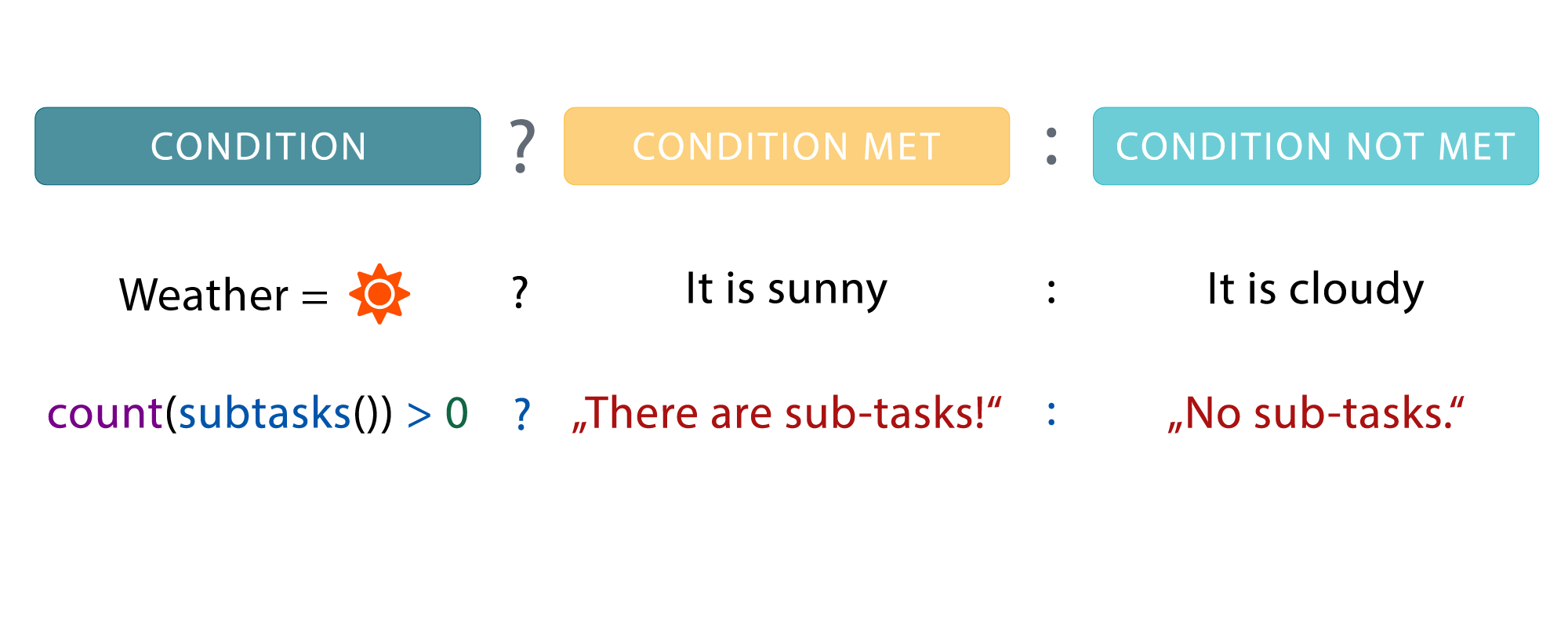The logical parsing mode is used to construct logical expressions.
To construct these logical expressions, you can combine different elements, such as field codes, JWT expression parser functions and operators. The result must always return one of two distinct BOOLEANvalues:
true
or
false.
Currently the only place where you can use the logical mode is the conditional execution parameter in Post functions.
Compared to the General mode, the logical parsing mode is quite more powerful since next to field codes and JWT expression parser functions it also supports the most common Operators (JWT expressions) which can be used to compare values.
Example expressions
| Parser expression | Description |
|---|---|
3 < 5 | This example returns:
|
3 > 5 | This example returns:
|
Expressions can be combined or linked using operators to construct complex logical comparisons.
| Parser expression | Description |
|---|---|
3 < 5 AND 7 > 5 | This example returns:
|
%{issue.assignee} = %{issue.reporter}
| This example returns:
|
In the logical parsing mode only field codes have to be enclosed by %{} and {} respectively. JWT expression parser functions can be used without enclosing brackets.
The operators, their meaning and the applicable data types you can use them with are listed below. A comparison always returns a BOOLEAN value. The table below lists all logical operators that can be used for linking logical terms in an expression. They take logical terms (which return BOOLEAN values) as operands and can thus be built using: Logical operators can only be used in logical expressions in the Logical mode or in combination with the conditional operator. The conditional operator, ?-operator, is a powerful one to construct conditional expressions. It basically allows you to construct the following expression: IF logical_expression Comparison operators
Logical operators
Conditional operator
true THEN term_1 ELSE term_2.<logical_expression> ? <term_1> : <term_2>
If you still have questions, feel free to refer to our support team.

